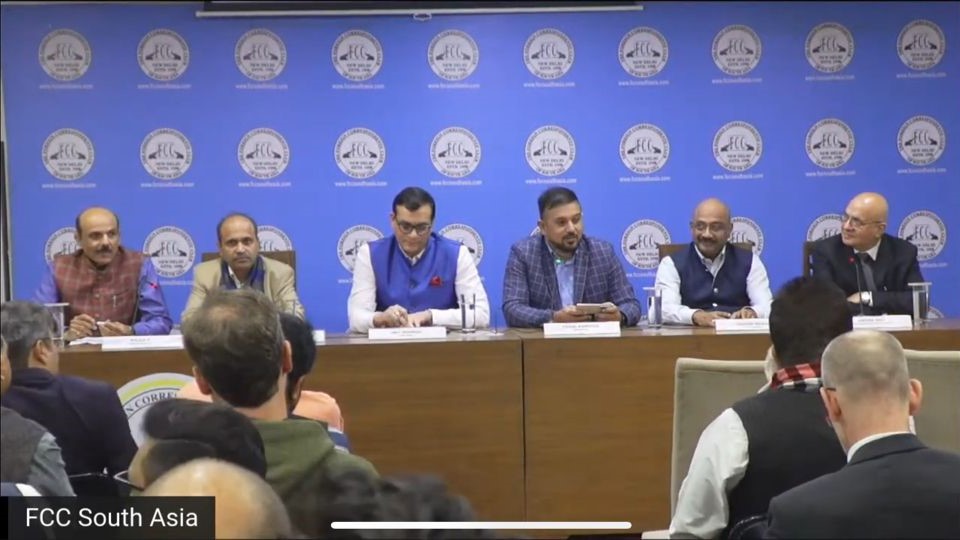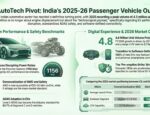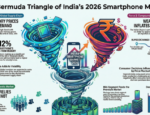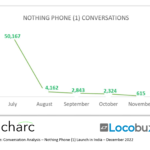5G requires an unprecedented collaboration in the bureaucratic corridors and a Digital Secretary to the Prime Minister can expedite it.
At the recently concluded panel discussion on what 5G means for India organised by The Foreign Correspondents’ Club of South Asia, we discussed how the transformative generation of mobile communication will knot with the socio-economic fabric of the country. 5G will result in the digital transformation of the country. Digital is no longer confined to few sectors of the society.
The panel I moderated had some of the stalwarts of the digital fraternity. They included
- Y G S C Kishore Babu, DDG, Department of Telecommunications.
- Balaji P, Chief Regulatory Officer & Corporate Communications Officer, Vodafone Idea Limited.
- Arvind Bali, CEO, Telecom Sector Skill Council.
- Amit Marwah, Head of Marketing & Corporate Affairs (CMO), Nokia India.
- Jagdish Mitra, Chief Strategy Officer & Head of Growth, Tech Mahindra.

There were several interesting aspects that the distinguished panel brought up. There was a unanimity about how 5G will take the digital transformation deep and wide across the country and encompass several profiles and sectors of the socio-economic fabric of India.
While the panelists agreed that a lot of policy and regulatory framework has changed that will foster immense growth for digital technologies including 5G, the fact remains that there is a strong need to have unprecedented collaboration and coordination between various departments, ministries and governments for faster and smoother implementation. The government right from the topmost level has taken digital sector with utmost seriousness and despite diversity in the range of issues and agenda to address, digital sector has not remained unattended.
With 5G there is a community level impact. The community could mean anything here. It could be a factory, a city, a village or anything that defines a cohort around which 5G can be used to develop specific applications. Now let’s imagine this through the government systems and framework. This means Digital is not now just confined to a few ministries or departments like Electronics & IT and Telecommunications. It has a wider canvas involving every stakeholder. There will be parallel and combined tracks for conversations and alignments between various departments, ministries and the governments. For instance, in use cases pertaining to agriculture, a lot of central ministries and departments would get involved along with almost all state and UT governments, as agriculture is present in each state and UT. Similarly, in healthcare, there would be involvement of medical departments, consumer affairs and many other organisations. There are several such instances to highlight, which only reinforce the fact that there is multidisciplinary and multi-sectoral coordination required at the highest levels where different departments and ministries could work as one team.
As by the structure of governance and public administration in India, Secretary is the chief bureaucrat of any ministry or department. 5G will require very top-level interventions and it could affect the entire functioning and impact of a department or a ministry. Such policy matters cannot be reviewed without involvement of secretary level officers. To have a reinforced and faster coordination between them, the PMO shall have to take the onus on facilitating this. It is nothing new and is already happening. However, looking at the magnitude of coordination required and the level at which things need to be discussed and disposed, it would be apt to have a Digital Secretary to the Prime Minister in the PMO who would be the single authority responsible for the digital transformation of the country. We could think of the Digital Secretary as India’s CDO or Chief Digital Officer.
India is already a 5G country. The use cases will now explode as the ecosystem gears up for the digital transformation leveraging 5G and the other enabling technologies that it can power. Though a lot of implementation and execution has sped up and the governance machinery is all geared up with faster resolutions, there is always an apprehension of delays owing to very vast execution canvas involving divergent stakeholders. It is only an institution like PMO which can bring in the necessary convergence in execution and hence there is a case to explore having a Digital Secretary to the Honourable Prime Minister in the PMO.











